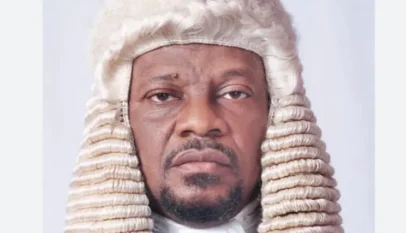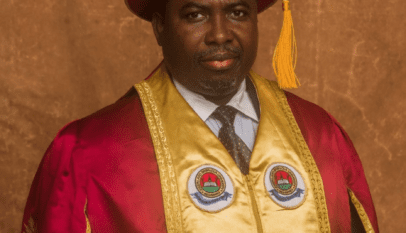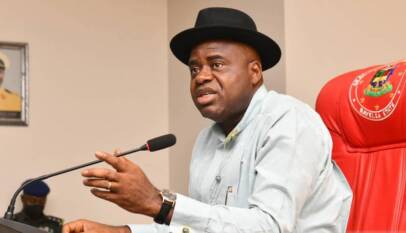The Attorney General of the Federation (AGF) and Minister of Justice, Lateef Fagbemi, SAN, on Wednesday, accused suspended Governor Siminalayi Fubara of Rivers State of directing militants to attack pipelines in the state.
This accusation was made as part of Fagbemi’s defence of President Bola Tinubu’s decision to declare a state of emergency in the state, which followed an ongoing and escalating political crisis.
The AGF’s statements added further gravity to the already volatile situation in the state, underscoring the importance of maintaining law and order in the face of a direct threat to national infrastructure.
Fagbemi asserted that if Governor Fubara had not been directly involved in orchestrating these attacks, he would have dissuaded the militants from their violent course. He argued that the governor’s actions, or lack thereof, contributed to the crisis.
He explained, “We live in a democracy. There were clear signs, I would say, of the governor signalling the militants. He initially mentioned he would inform them when it was time to act. If this was wrong, did he publicly distance himself from them? The answer is no. A week later, the militants began attacking, destroying oil pipelines.”
Fagbemi emphasized that the country’s dependency on oil makes any attack on oil infrastructure not just a local issue but a national crisis. He argued that anyone responsible for such attacks should be seen not only as an enemy of Rivers State but as a direct enemy of the Nigerian state.
“Attacking the pipelines jeopardizes the economic stability of the nation. This is an act that affects all Nigerians,” he stated.
The AGF pointed out that the decision for a state of emergency was based on the Supreme Court’s judgment, which provided the legal foundation for President Tinubu’s action to safeguard critical national infrastructure in the state. Fagbemi added that such measures were not taken lightly but were necessary in light of the growing political instability and the ongoing violence in Rivers State.
He further clarified that the suspension of Governor Fubara and other members of the state House of Assembly was imperative due to their failure to ensure a conducive environment for governance, especially as the political situation worsened. “It is clear that the governor and state assembly members were unable or unwilling to restore peace, thus forcing the federal government to step in,” Fagbemi said.
Responding to critics who claimed the president’s decision was hasty, Fagbemi insisted that the urgency of the situation required swift intervention. “The people of Rivers State were living in fear, and lives were being lost. It is an extraordinary situation. It demanded extraordinary measures,” he argued.
He highlighted that the suspension of both the governor and his deputy was a necessary response to the exceptional circumstances facing the state. “When there is a direct threat to national security and infrastructure, the government must act decisively.”
Fagbemi also took the opportunity to address arguments that previous Supreme Court rulings on the declaration of a state of emergency in other states should apply to Rivers State. He dismissed these claims, emphasizing that the situations in those states were different from the ongoing crisis in Rivers.
“This is not a case of routine political instability. This is about the sabotage of critical infrastructure that is vital to the country’s economy. The scale of damage to the oil pipelines requires immediate action,” he said.
As for the next steps, Fagbemi said, “The decision now lies with the National Assembly, who can either approve or disapprove the state of emergency. It is their prerogative,” he noted.
“This is a signal to other states that the government will not hesitate to take stringent measures if national security is at risk. The government is committed to protecting its citizens and the nation’s critical infrastructure,” he concluded.
This latest development has sparked intense debate across the country, with critics arguing that the president’s intervention could set a dangerous precedent for federal involvement in state matters. Others, however, have supported the decision, viewing it as a necessary step to prevent further destruction of national assets and to restore stability in a region crucial to Nigeria’s economic well-being.



































